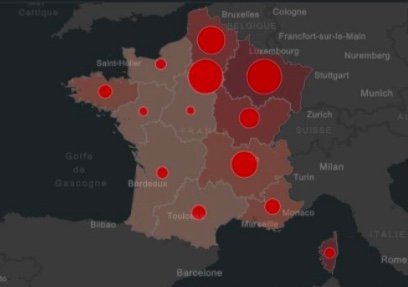Unable to conduct face-to-face surveys because of the confinement, social science and epidemiology researchers have been using online questionnaires for the past few weeks: perception of confinement, psychosocial impacts, effects of confinement on eating practices, etc.
This crisis has shown the importance of involving the public in the surveillance of the epidemic and in the understanding of its mechanisms of circulation.
This "participatory epidemiology" is in the wake of community-based participatory research (CBPR), developed in the North American context (from the 1980s onwards, researchers began to work alongside groups of concerned citizens on certain local environmental health issues).
Epicov: a survey of 200,000 people to understand and map the immune status of the population
"Quantifying the proportion of people who have developed antibodies in response to the SARS-CoV2 virus and documenting the effects of this epidemic on the living conditions of our fellow citizens appear to be major challenges in order to support the development of the most appropriate decontainment and prevention strategies, to allow for early detection of any epidemic resurgence and, in the longer term, to monitor the effectiveness of the measures taken.Led by Inserm and the Direction de la recherche, des études, de l'évaluation et des statistiques (DREES) of the Ministry of Solidarity and Health, in collaboration with their partners (INSEE, Santé publique France, CNRS, INED, Université Paris-Saclay), the project EpiCOV is a large epidemiological study, supported by a large statistical survey, proposing to provide a global and scientifically reliable mapping of the immune status of the population and its dynamics, on the whole territory, via the collection of biological samples coupled with questionnaires.
The objective of the EpiCOV project is to provide, on the one hand, a precise mapping of the population's immune status, health, living conditions and social inequalities concerning these 3 parameters, and on the other hand, a follow-up of the epidemic dynamics in the short, medium and long term. The deployment of a large-scale and statistically representative epidemic surveillance cohort at the departmental level in an exceptionally short timeframe will in particular provide input for epidemic modelling.
The project will be based on a large national survey of a representative sample, randomly selected by INSEE, of more than 200,000 people aged 15 years or older, residing throughout the country (metropolitan France, Martinique, Guadeloupe and Reunion Island).
These people will be asked to answer a questionnaire (online or by phone) lasting 20 to 30 minutes and, at the same time, for 100,000 of them who accept it, to take a sample of their blood at home, which will be sent back by mail to determine if there has been contact with the virus.
Responses will be treated confidentially by the research teams, in compliance with the regulations in force (statistical confidentiality, CNIL, RGPD).





